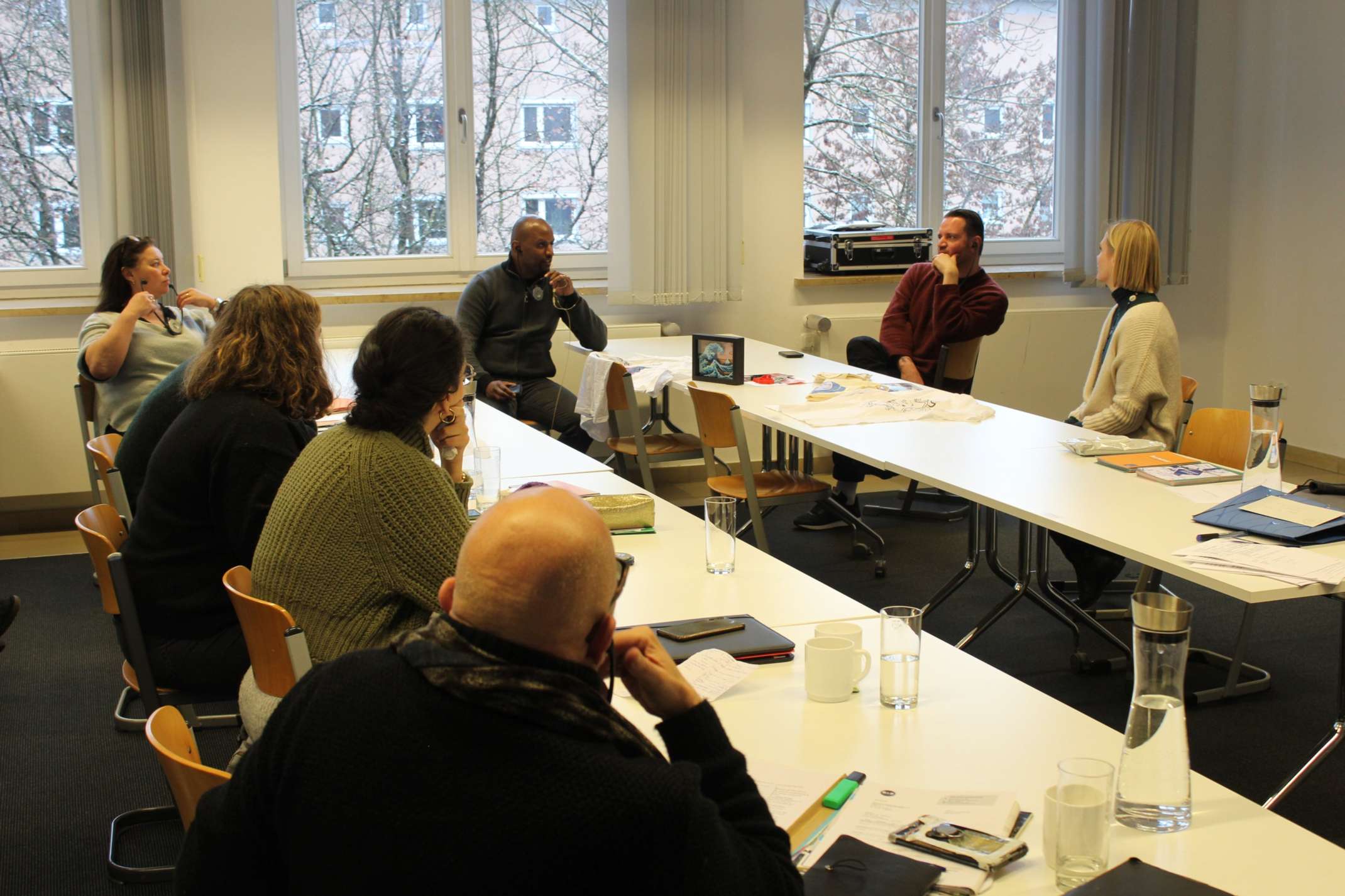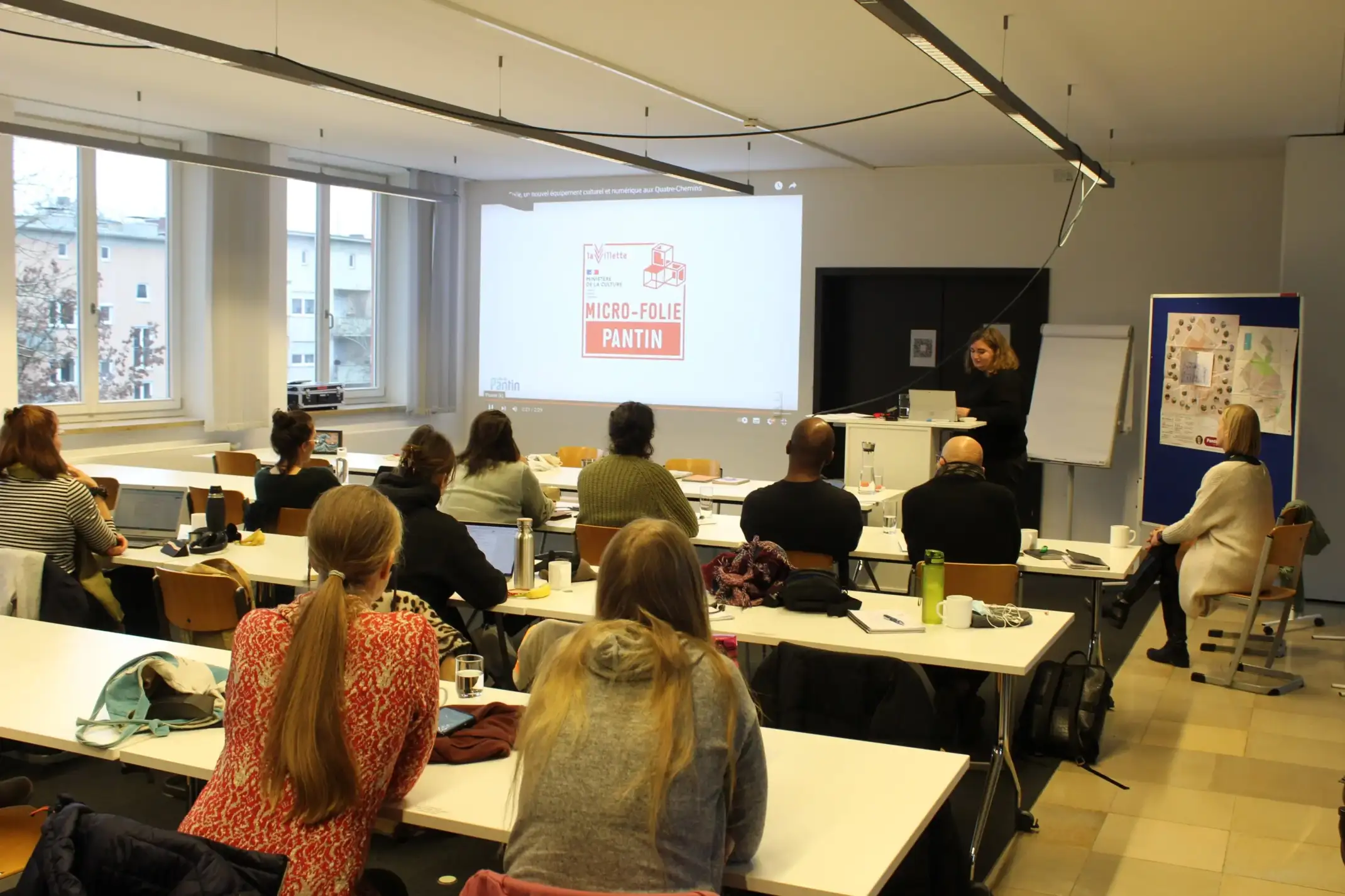
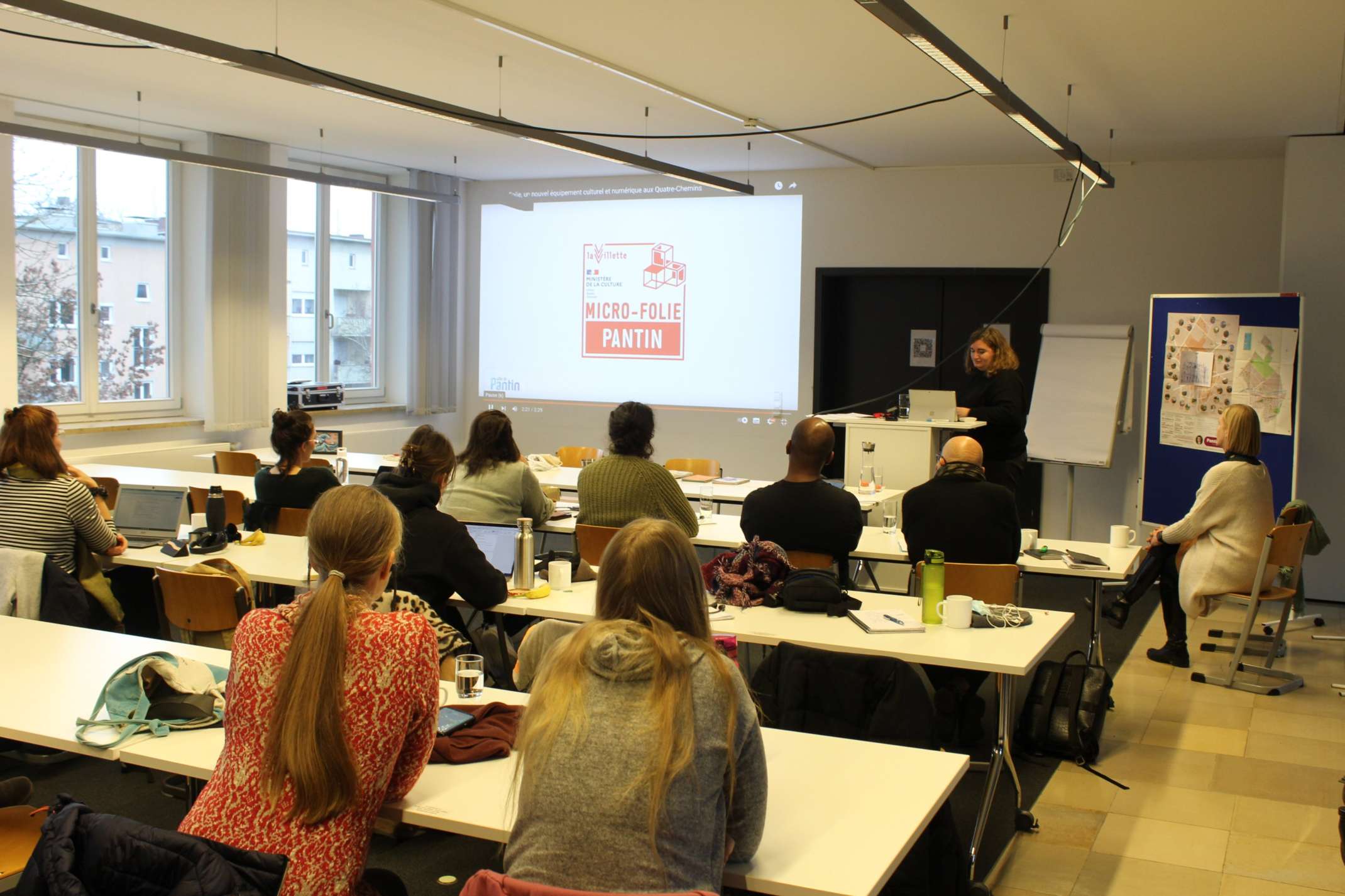
Youth (work), public space and urban society in Germany and France
Workshop: 08/12 - 10/12/2022
What does it mean to be a citizen? What does youth work and participation look like in France and Germany? What role can residents of a city play in co-creating their local environment? These and many other questions were addressed in the project "Youth (work), public space and urban society in Germany and France" under the direction of Professor Rink and Professor Linßer. Professionals and academics from Pantin, a suburb of Paris, were invited to the University of Applied Sciences Augsburg to give lectures and engage in an intensive dialogue with experts, representatives of the city of Augsburg, and students of social work from Augsburg.
A Visit to the Youth Center
To experience youth work in practice in Augsburg, the open youth centre "fabrik", which is part of the „Stadtjugendring - SJR“, was visited in the afternoon.
A guided tour was given by Markus Neumann, who is responsible for the regional management and leadership of the youth centre. He explained the principles apon which the work in the centre is based: Openness - voluntarism - low threshold. Activities are developed together with the young people in a requirement-oriented and cooperative way. Projects are geared to the lifeworld of the addressees and are designed to be inclusive.
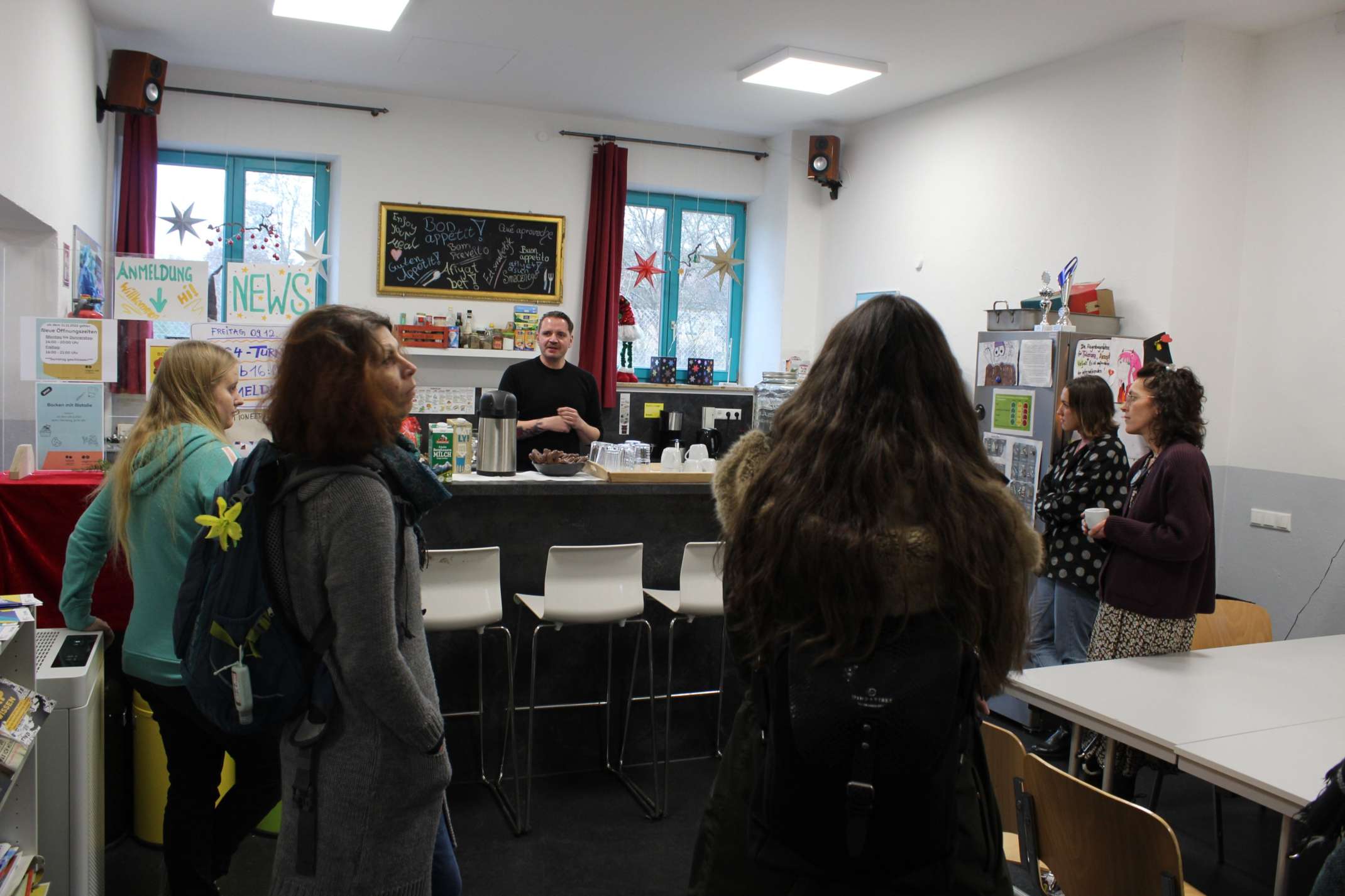
Citizenship and Youth in Pantin
Professor Alain Ananos, head of the department „Citoyenneté“ (citizenship), opened the talks with the topic "La Citoyenneté": The role of residents in the urban society of Pantin and their participation". Dr Ananos is responsible for the regional development of Pantin and works as a professor of political science at the "Université Paris Nanterre". In his lecture, he referred to the importance of the French revolution for the development of the perception of the term "citizen". He emphasised that the understanding of the terms children and young people has changed from "incomplete adults" to adolescents. Young people should be given a chance to develop healthily within their environment and be able to fully realise their potential. To achieve this, the conditions must be designed in such a way as to enable them to actively partake in the shaping of their living space and to act autonomously.
Ms Djouadi was an animator at a youth centre in Aubervilliers for many years and is now responsible for the overall management of the youth centres in Pantin. For her it is a priority that young people are given the resources they need to develop and broaden their skills. Ms Djouadi was an animator at a youth centre in Aubervilliers for many years and is now responsible for the overall management of the youth centres in Pantin. "A youth centre should provide opportunities for young people to influence their environment and build the confidence needed to develop civic awareness that empower the youth," she explained in her presentation. "Young people are the adults of tomorrow. They should actively take part instead of just consuming." The motto of the youth centres she works at is "autonomy, success, and education".
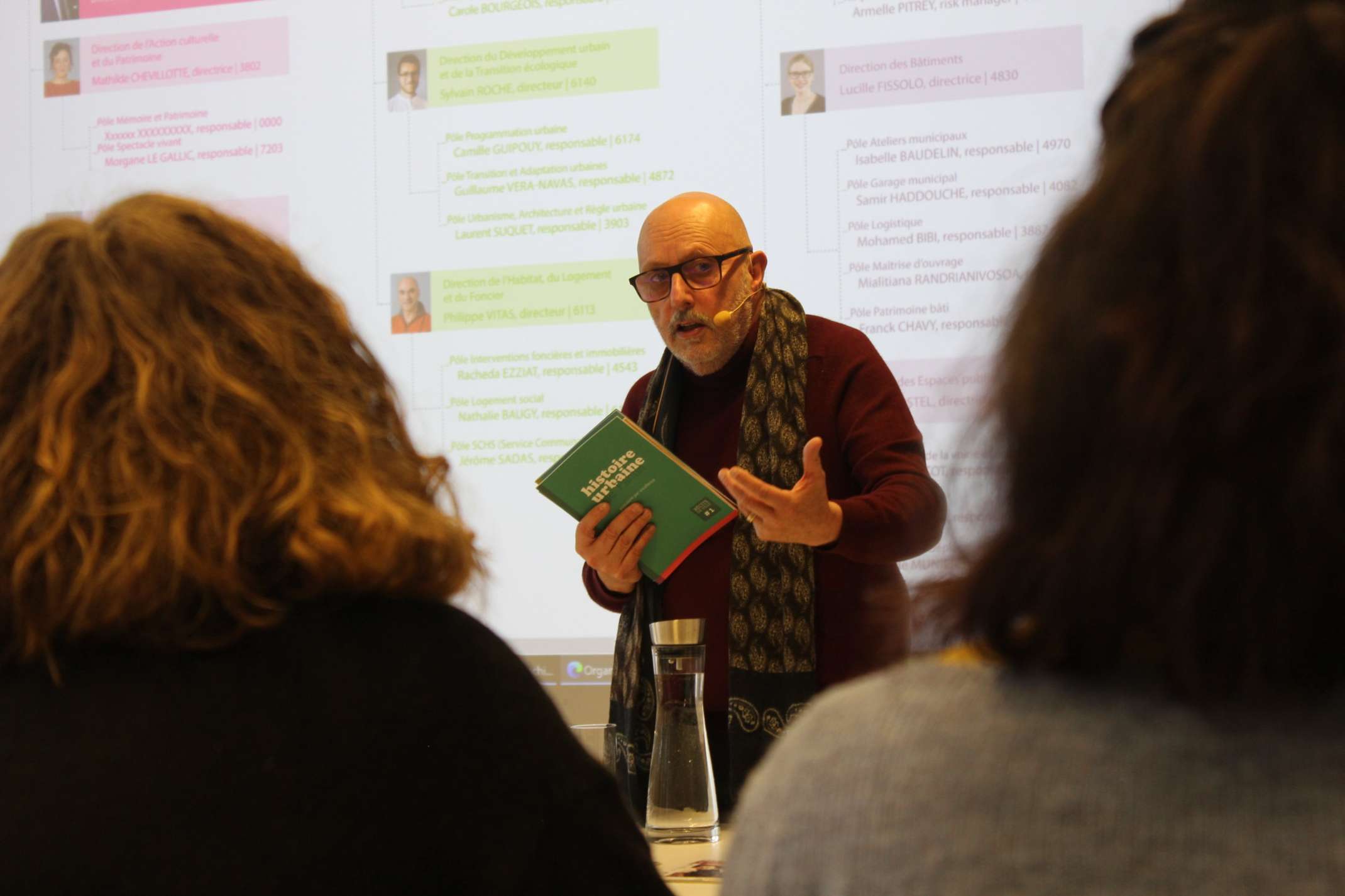
Social Policy - Guests from Germany and France
The university also welcomed the city director of Augsburg, Dr Melanie Haisch, as a guest. Her presentation focused on civic participation and the role of young people in Augsburg. Dr Haisch described Augsburg as a "cooperative city" in which citizen participation is also part of the coalition agreement. Although minors are legally excluded from the term "citizen", young people should realise that they can actively participate and make a difference. In 2022, the framework concept for youth participation was adopted by the city council, ensuring the path for youth continuous participation. Here, adolescents are given the opportunity to actively contribute ideas for urban development. A participation office is being set up for this purpose. The principle of citizen involvement should be to make it as simple and transparent as possible for the residents. Dr Haisch also stated that city councillors have to improve the approach to citizens.
Ines Abdoun, the representative for local democracy, reported on citizen involvement, using the example of the city of Pantin. In this city of 60,000 inhabitants, minors are firmly integrated into the concept of citizen participation. Ms Abdoun noted a growing lack of interest in political involvement. The local authorities want to counteract this by holding representative events in public spaces and visiting schools. The city wants to promise the residents binding participation by initiating four pledges: the Involvement Promise is intended to ensure that citizens have a voice in projects involving their city, the Implementation Promise sets specific deadlines by which these projects are to be carried out, and the Relationship and Release Promises are intended to provide residents with transparent information on the state of the development.
With reference to France, where there is no legal basis for youth work and participation, Mr. Galanti, head of the Youth Department, within the Office for Child and Youth Welfare from the city of Augsburg, introduced this topic and emphasised in particular § 8 of the Sozialgesetzbuch 8 (SGB - German Social Code). This paragraph covers the participation of children and young people in decisions made by the Public Child and Youth Welfare Services. "This paragraph exists but is applied far too rarely", criticised Mr Galanti. An example of such an involvement is the first „Youth Forum 2022“, which was set up in cooperation with the University of Applied Sciences Augsburg.
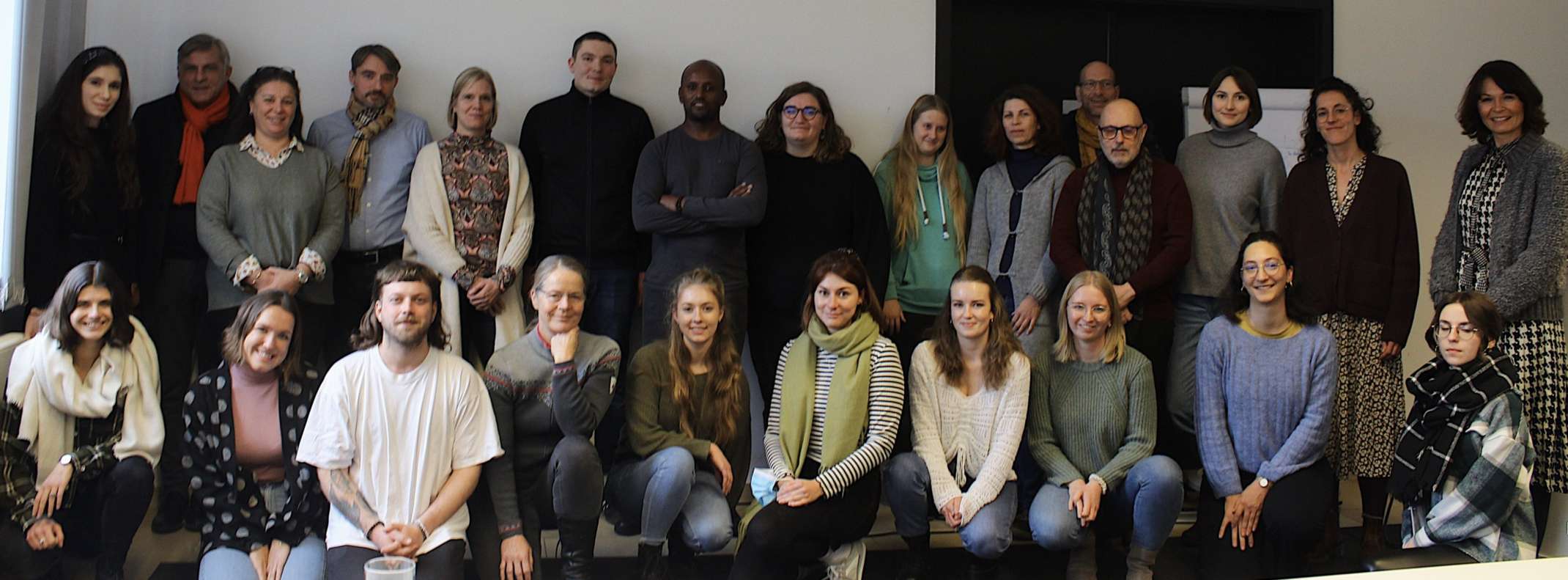
After the tour, Helmut Jesske, Managing Director of the Stadtjugendring (SJR), explained the structures of his organisation. The SJR is responsible for public youth work in Augsburg and has the task of (standing up for) defending the interests of young people and representing them at political levels. The aim is to impart skills and competencies so that adolescents can actively participate in and understand political processes. According to Mr Jesske, "Youth work is unfortunately chronically underfunded". Helmut Jesske said: "In 2008 already, we presented a concept for the participation of young people in the city; now, in 2022, it will finally be implemented in a form similar to the concept.“
Mr Jesske also highlighted the regulation for under-18 elections and their importance for getting young people into politics. A central demand of the SJR is to lower the voting age to 16.
Practical Examples from France
Saturday marked the final day of the project, with speeches, discussions, and a round of reflections.
Rachid Outouia spoke of his experience and gave project examples from the practice of working with young people in France. He has worked in neighbourhoods with diverse social challenges for over 20 years and shared his experience of "le lab" which is a concept that aims to support young people between the ages of 17 and 25 in different life circumstances. The addressees are supported and promoted in further education or personal development through open offers or projects lasting several days.
Lastly, the students were introduced to the concept of „Micro-folie“. Originating in France, it aims at making art and museum exhibitions accessible to all people in a simple and low-threshold way. Celia Galipeau vividly explained this project, which the French government and the Ministry of Culture fund. The aim is to make young people more curious about art and culture. Micro-folie is intended to bring art and culture to neighbourhoods without accessible offers in these areas. Young people should also be able to visit places of culture as adults and develop curiosity and openness for their surroundings.
Practical examples and reports of youth work in France enriched the students. “I was able to gain inspiration from another system and learn about new ways of implementing projects with children and adolescents. The different use of resources for children and young people was of particular interest to me.“ stated one student at the reflective interchange.
“The aim was to make a binational and enriching exchange possible for our students, and to introduce new perspectives for the profession of social work“ Professor Rink stated at the end. The exchange was made possible thanks to the International Office and the HSA (agency for cooperative university projects). Thanks to the many participants and supporters, this project turned out to be a great success.
